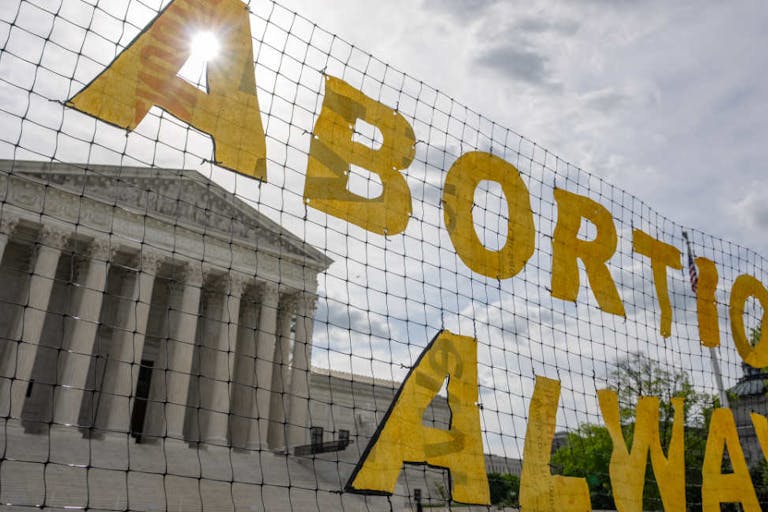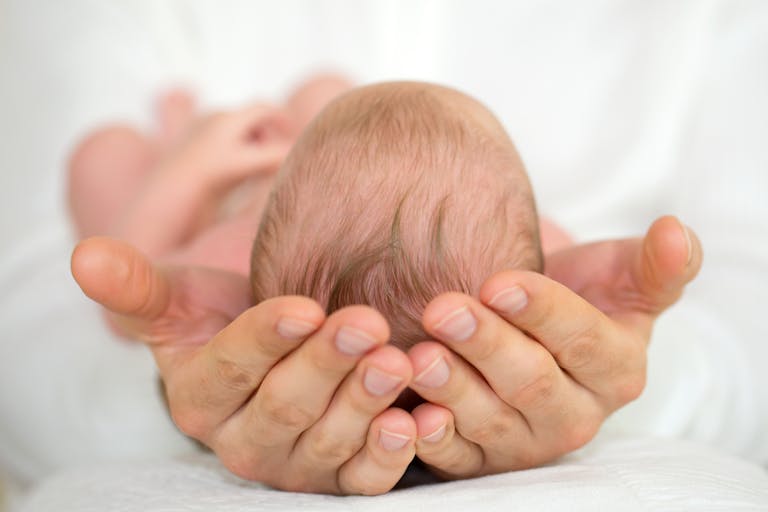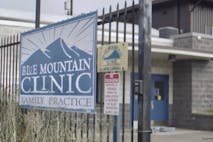
A growing number of Americans call themselves ‘pro-choice’ – but what’s really behind it?
Nancy Flanders
·
Former Planned Parenthood worker: ‘I named each baby’
Former Planned Parenthood clinic worker Judith Fetrow told her story at a conference sponsored by the Pro-Life Action League. Excerpts from her testimony appear in the video “Abortion: The Inside Story.”
When Fetrow worked at Planned Parenthood, she had a great deal of hostility towards pro-life sidewalk counselors and protesters. But she did understand that what they were doing in the clinic was murder. She would mock pro–lifers’ concerns about the babies being aborted. She was not shy about affirming the gruesome nature of abortion, and readily admitted that she was involved in killing babies…
When someone would show me a picture of an aborted baby and say, “To me this is abortion,” I would agree with them. When someone begged me not to kill my baby, I’d look at them and say, “Oh, I’m not here to kill my baby. I’m here to kill other people’s babies.”
Fetrow does not comment on whether the other clinic workers also acknowledged the humanity of the unborn. But she says that none of them wanted to handle the bodies of aborted children.
Clinic workers may say they support a woman’s right to choose, but they will also say that they do not want to see tiny hands and feet. They do not want to be faced with the consequences of their actions.
Although some clinic workers refused to work in the back with the babies’ corpses, they couldn’t escape the reality of what was going on at the clinic. All of them smelled the blood of the children who were being slaughtered:
Although workers can be protected from seeing the babies butchered bodies, there is no inoculation to make clinic workers immune to the smell of blood, and the smell of blood permeates the clinic on killing days.
Although Fetrow did not like handling the bodies of aborted babies, she sometimes volunteered for the grisly job. She was troubled by the lack of respect fellow clinic workers had for the dead children:
Generally there is one clinic worker in charge of the babies. No one at Planned Parenthood wanted this job. I did not particularly want this job. However, I did not want to see the babies treated disrespectfully. I did not want to hear Janice callously say she was taking the kids and putting them into daycare….
Fetrow describes mourning for each baby:
I sat Shiva for the babies; I said the prayers for the dead. I also named each baby when I placed it in the contaminated waste container.
Eventually, Fetrow’s conscience got the best of her, and she decided to leave. But when she started to exit the clinic on what she planned to be her last day there, judgmental pro-life protesters destroyed her resolve:
Article continues below
Dear Reader,
Have you ever wanted to share the miracle of human development with little ones? Live Action is proud to present the "Baby Olivia" board book, which presents the content of Live Action's "Baby Olivia" fetal development video in a fun, new format. It's perfect for helping little minds understand the complex and beautiful process of human development in the womb.
Receive our brand new Baby Olivia board book when you give a one-time gift of $30 or more (or begin a new monthly gift of $15 or more).
. . . the Tuesday before I committed my life to the Lord, I had actually walked out of the clinic. I started down the driveway towards the Christians, because I wanted out. I wanted to not be there anymore. And one of the Christian women noticed me and started shouting, “Murderer! The blood is on your hands!” The other Christians started shouting the same thing. It felt like someone had kicked me in the stomach. I went back inside the clinic, and I went back to work.
Finding no solace or acceptance among the pro-life protesters, and wounded by their cruel words, Fetrow gave up. Her resolve crushed, she returned to the clinic. She just wasn’t strong enough emotionally to bear up under their harsh condemnation when she was so emotionally vulnerable.
For pro-lifers who go to clinics and protest or sidewalk counsel, Fetrow’s experience should be a lesson. Hatred, judgment, and anger are counterproductive in the abortion fight, especially outside abortion clinics. Had Fetrow been met with compassion and understanding, she may well have left the abortion business at that moment. Pro-life activism is at its best when it reaches out with compassion towards everyone affected by abortion, including the clinic workers and abortionists. In fact, many clinic workers are suffering emotionally, and their suffering drives them to work in the abortion industry.
Fetrow estimates that roughly one third of the women she worked with at the clinic had been sexually assaulted or abused. She says that for someone coming from:
a world of secrets and pain, where the only safe place is the company of other wounded women, then it is not reaching very far to come to the wrong conclusions: that killing children means saving them and that women are safer, more autonomous and better able to care for themselves in a dangerous world if they bear no children.
It takes compassion to reach these clinic workers. Of course, it is not true that every clinic worker carries the burden of pain in their hearts. Regardless, pro-lifers need to reach out to them with compassion and refrain from abusive and judgmental language. Not many people convert, either to the pro-life movement or to Christianity, by being loudly and publicly shamed.
Fetrow had gone back to the clinic. But over time, another pro-lifer reached out to her with an attitude very different from the ones who yelled at her. Fetrow identifies him only as “Steve.” He treated her with kindness, and over the course of several weeks, the two became friends. Eventually, he influenced her to take the final step and leave the abortion business.
Fetrow says that Planned Parenthood has a strict policy forbidding clinic workers from talking to pro-lifers outside the clinic. She explains why:
Too many staff and volunteers have been hearing the truth and repenting. It’s hard to fight a battle, much less win a war, when your soldiers keep surrendering.
Abby Johnson, Ramona Trevino, Catherine Anthony Adair, and Sue Thayer are only a handful of the former workers who have left Planned Parenthood over the years and embraced the pro-life movement. Although many former Planned Parenthood workers will never step forward to tell their stories, those that have are making a tremendous contribution to the pro-life movement. Reading or listening to their stories can teach pro-lifers a great deal about what goes on in abortion clinics, as well as what tactics bring about conversion in clinic workers.
Live Action News is pro-life news and commentary from a pro-life perspective.
Contact editor@liveaction.org for questions, corrections, or if you are seeking permission to reprint any Live Action News content.
Guest Articles: To submit a guest article to Live Action News, email editor@liveaction.org with an attached Word document of 800-1000 words. Please also attach any photos relevant to your submission if applicable. If your submission is accepted for publication, you will be notified within three weeks. Guest articles are not compensated (see our Open License Agreement). Thank you for your interest in Live Action News!

Nancy Flanders
·
Issues
Nancy Flanders
·
Politics
Bridget Sielicki
·
Issues
Sheena Rodriguez
·
Guest Column
Right to Life UK
·
Issues
Bridget Sielicki
·
Guest Column
Sarah Terzo
·
Abortion Pill
Sarah Terzo
·
Guest Column
Sarah Terzo
·
Guest Column
Sarah Terzo
·
Guest Column
Sarah Terzo
·